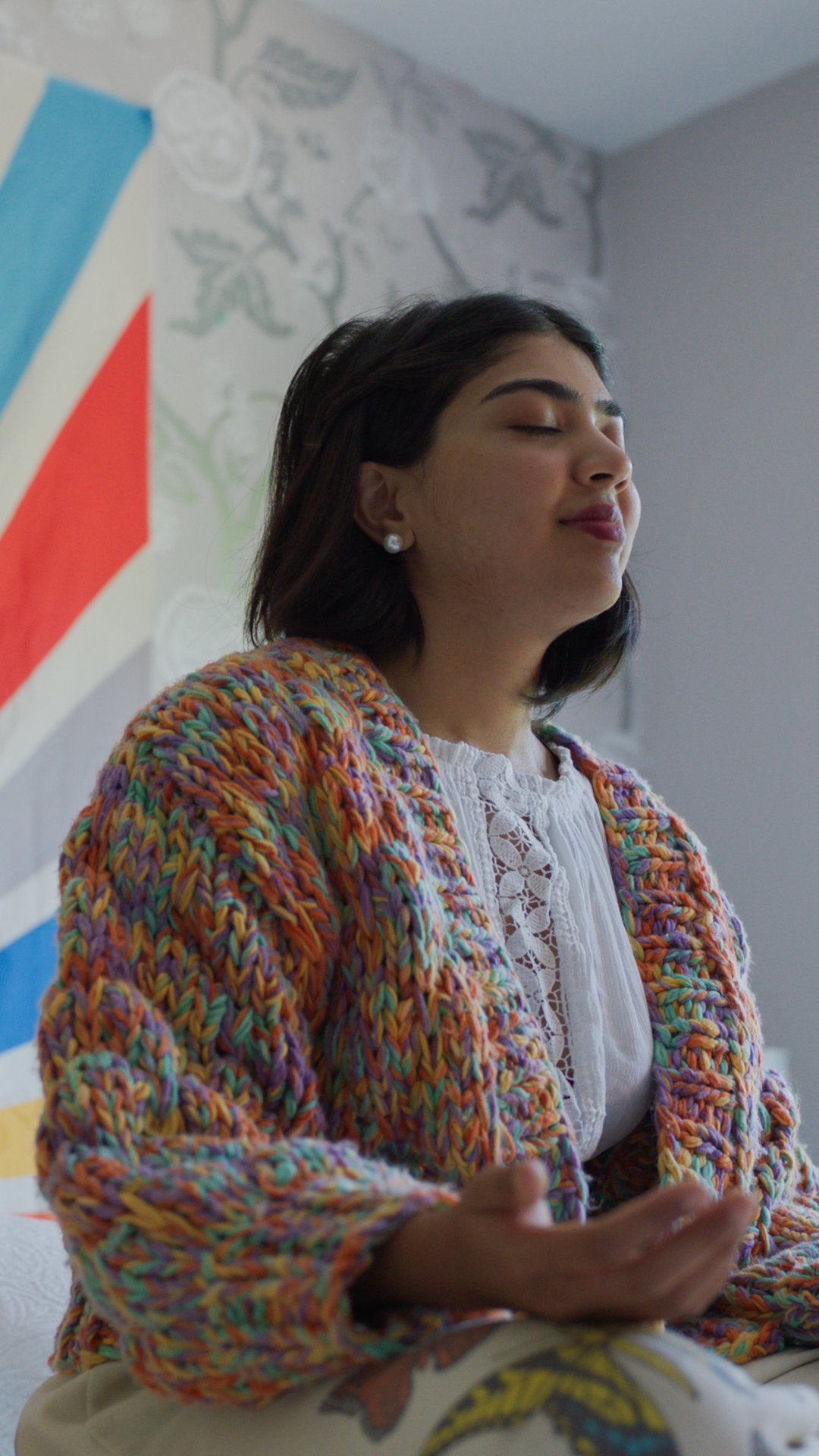Creating a better way to connect
The importance of communication
Communication is important for everyone, especially ease of communication. For some, this ease is more difficult to achieve, even with the assistance of software designed to help users communicate. Standard AAC—augmentative and alternative communication—software is a tool that’s supposed to help people with communication disabilities, but it’s often unable to meet users where they’re at, causing frustration and slowing the process of something essential to humanity.
In my heart of hearts, I’m constructing FreeSpeech for Della.
Helping Della express herself better
Della Calder was born with a rare genetic condition called Bainbridge-Roper’s Syndrome, a disorder that has many of the hallmarks of autism. Although she doesn’t engage with people socially, she’s interested in them and what they’re doing, and has shared an unbreakable bond with her brother Archer since childhood. When Archer was in high school, he realized Della could use a better way to share her true thoughts and feelings. As a non-speaking person, she needs technology to help her communicate, but most AAC software is expensive and not tailored to individual users, making communication an ongoing challenge.
Archer didn’t think this was fair. Why should communication feel so difficult and cost so much for non-speaking people? He did some research and discovered how simple standard AAC software was. This inspired him to create a better AAC app, FreeSpeech, and include his sister in the development process to ensure the end product met her needs. Through co-design, a mode of collaboration, Archer was able to identify the ways he could design a better app. For example, by watching Della navigate other apps like YouTube, Archer figured out she preferred to click through suggested videos instead of using search or category features. He also realized that by disabling the sentence builder feature, Della preferred to communicate with single words rather than complete sentences, which created a more accessible and usable product.
Since FreeSpeech is fully customizable to the user, they can communicate in a personal way by tapping their favorite icons, which are then translated to speech. Archer put Della’s words for her favorite things in the app instead of the usual standard collection found in proprietary apps, and she loved it. The snacks, TV shows, and school bus buttons that make up Della’s collection are easily editable, giving her limitless access. She’s able to express herself the way she wants to more and more each day as she adds to her collection.
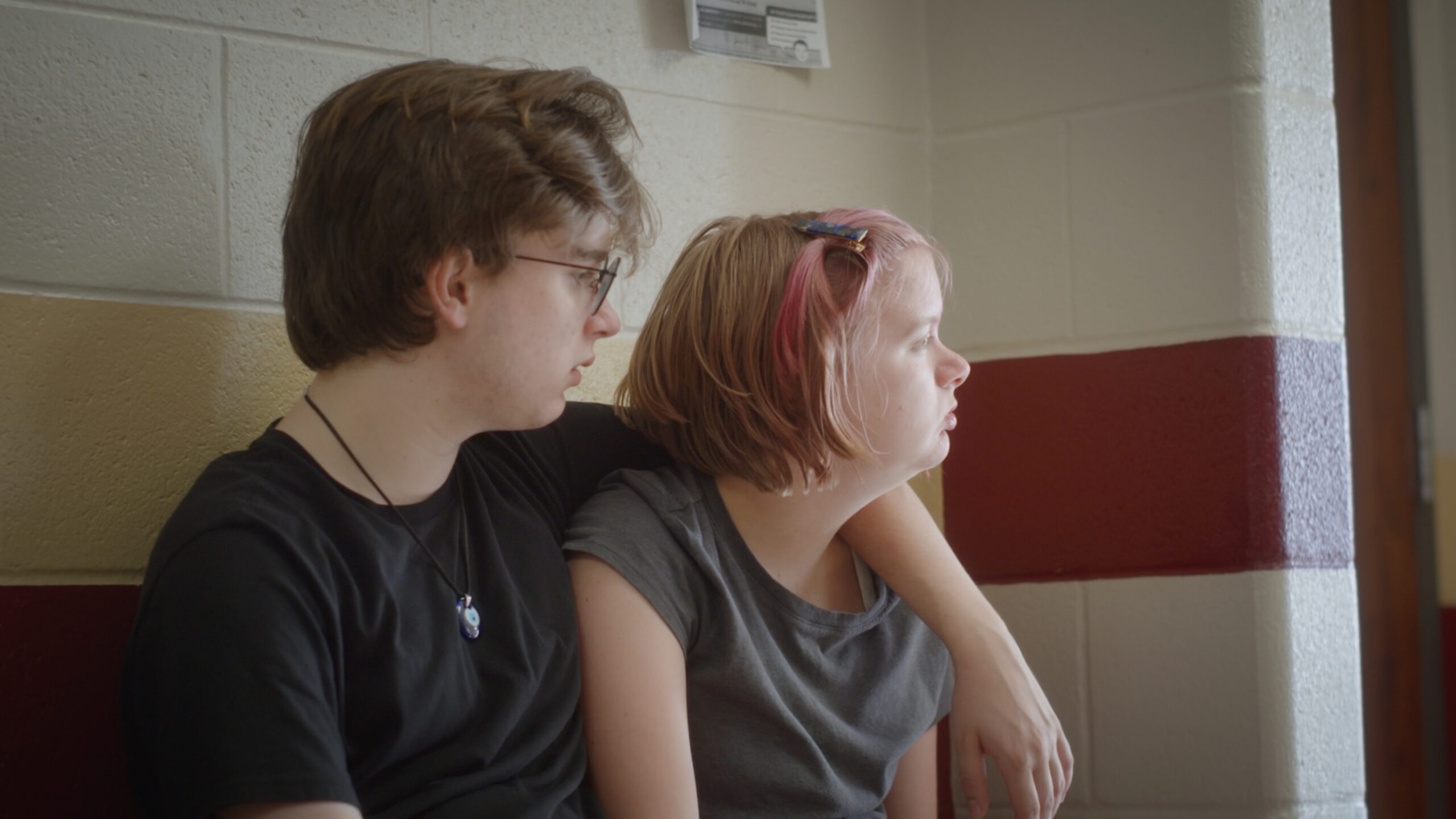
Archer sees his sister Della as his first end user for FreeSpeech.
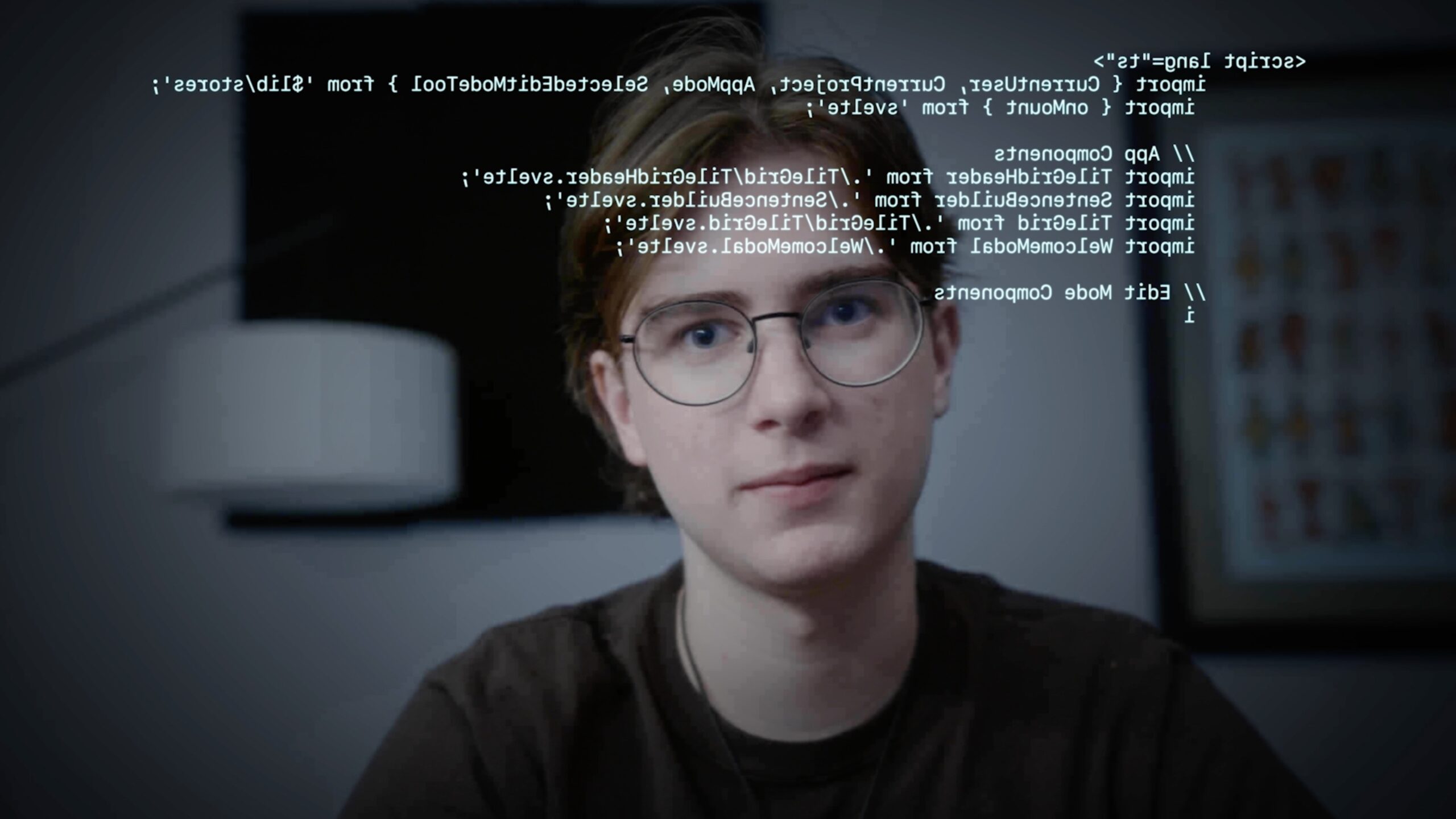
Archer’s first test version of FreeSpeech became the number one trending app on GitHub.
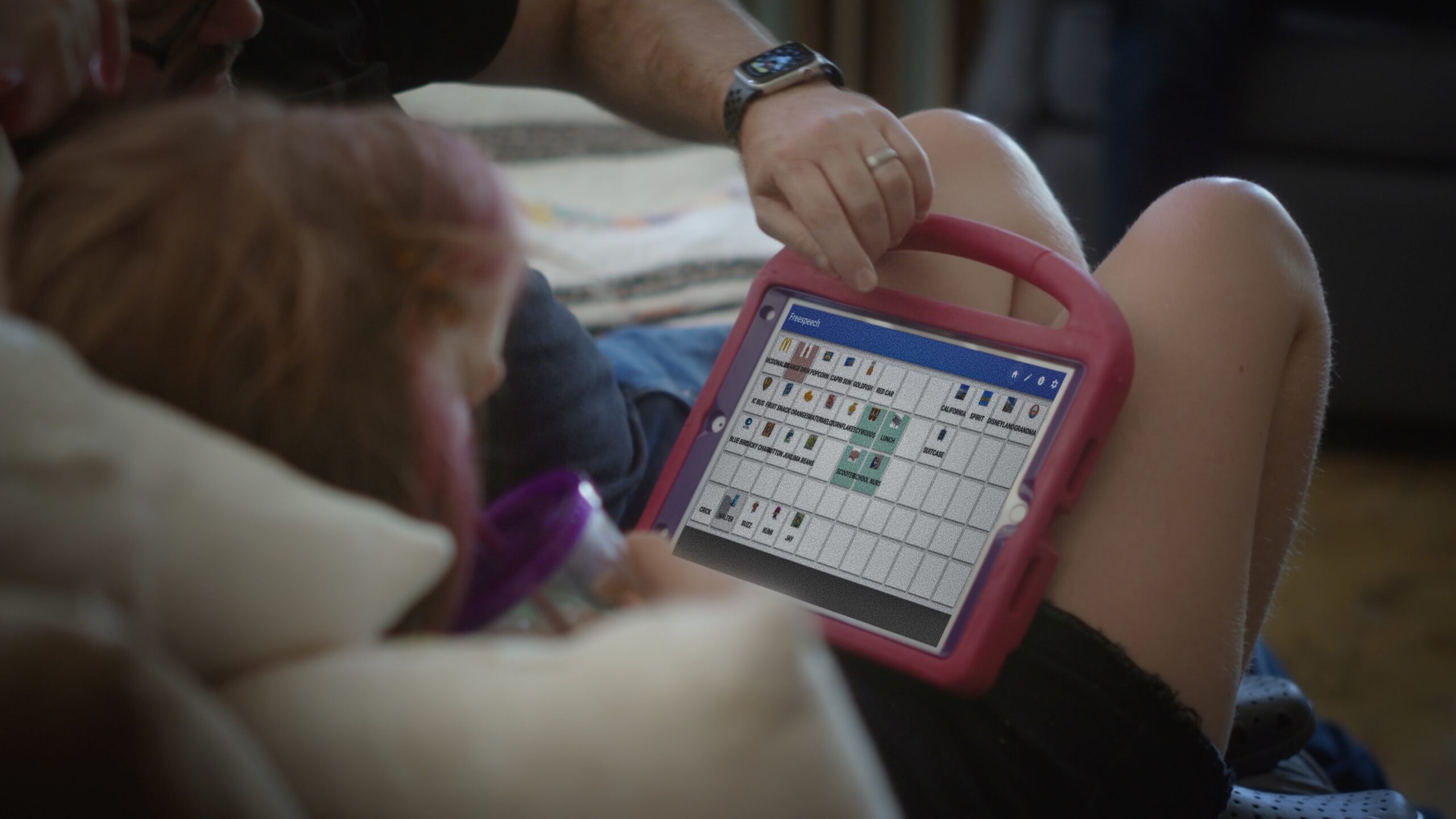
Della uses FreeSpeech to communicate with her family and express herself her way.
Open-source AAC has a promising future
After Archer posted his first test version of FreeSpeech on TikTok, he garnered over a million views and received a lot of interest. He couldn’t believe so many people were excited about the app he’d created. It also became the number one trending app on GitHub, and the community was super receptive.
Now, FreeSpeech is available to everyone as a free and open-source assistive communication app written in TypeScript. Technologies sourced from a greater collaboration including Microsoft Cognitive Services give users AI-generated voices. An OpenAI GPT-3 model handles complex textual analysis tasks along with phrase and word conjugation. FreeSpeech’s client is built on Svelte, a super-fast front-end UI framework. After creating an account, users can instantly develop their language skills and share their thoughts in a few taps.
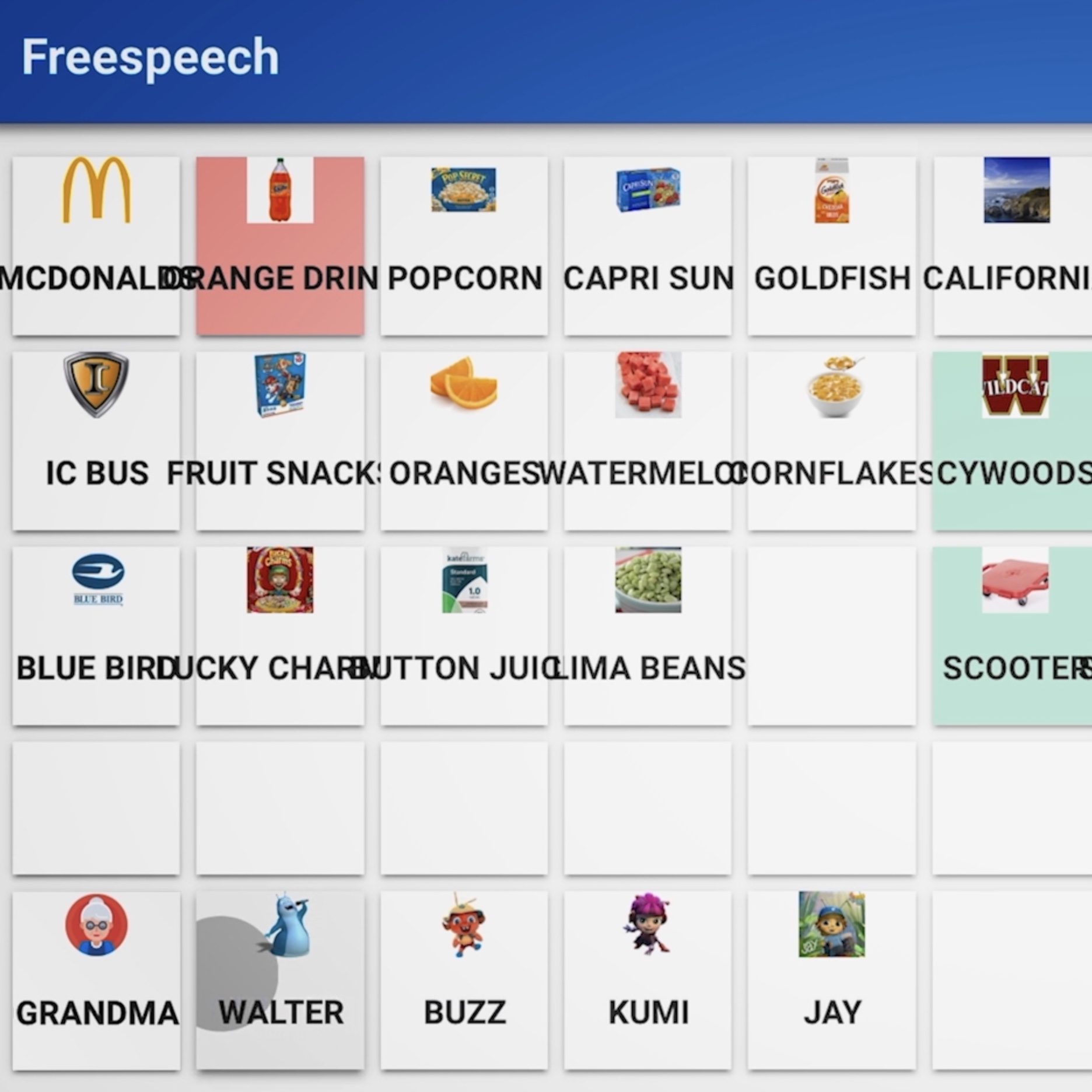
FreeSpeech helps improve language skills
FreeSpeech AAC offers premium features such as AI voice generation and file hosting made possible with community donations. It’s designed to run on almost any tablet or computer with an intuitive interface that can be tailored for anyone, eliminating the need for additional or costly devices. An expansive symbol and icon library, shared community pages, and resources for schools and clinics are many of the upcoming features FreeSpeech has in the works. And, since it’s 100% open source, the app is constantly being improved and iterated on by the community with user data stored in a secure Postgres database.
FreeSpeech continues to improve the lives of thousands of non-speaking people on a global scale. According to Globe Newswire, the total global market value for AAC devices across all companies is projected to reach $602 million by 2029, a significant increase from its value of $273 million in 2022. As a free, customizable AAC tool, FreeSpeech has become a welcome alternative to the standard expensive software that keeps many non-speaking people from expressing themselves their own way. It continues to contribute to the democratization of communication tools and will always be open source and available to everyone.
FreeSpeech is allowing me to make better software and hopefully be a better person.
Della and Archer today
Archer is now in college studying software engineering while working on a commission-based software development internship. He actively contributes to open-source projects and has released several libraries. Della uses FreeSpeech constantly, and her family reports that she continues to be extremely happy with it. So happy, that they’ve heard her talking to herself with it in her room.

